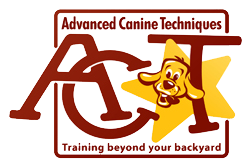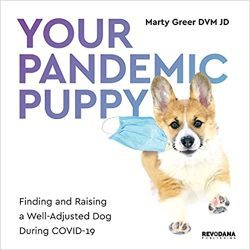- Create a routine and follow a structured schedule with your puppy. Mealtimes, nap times, regular mental and physical exercise, training times, and chill times. Your puppy needs all of these every day.
- Don’t dote on your puppy at home. Given them time to rest in their crate or in a dog bed or pet cot in the same room with you without attention. CORRECT them for whining or barking. Help them learn how to self-soothe. Praise calmly when they are quiet and relaxed. This is a critical skill that puppies need to learn. This is especially important when multiple people are home.
- Keep a leash on your puppy to allow for easy and instant communication. They can’t jump up if they are on a leash. The more management you implement in the beginning, the less you will have to use later on. Remember, either you are training the dog, or the dog is training you!
- Make sure that EVERYONE is rewarding and correcting the same behaviors. And that everyone is using the same commands and hand signals. It is important this happens within 3-5 seconds of the behavior occurring. I keep treats and training aids on me at all times so I can correct appropriately. (I have trainer friends that sleep with a spray bottle or e-collar transmitter to correct any unwanted behavior). They give verbal praise for good choices in the crate or when tethered in the same room
- Practice a “learn to earn” style of living to maximize your dog’s learning abilities and good behavior. I use this style to help with grooming, handling and obedience. Hand feeding can play a huge part in teaching your puppy useful skills and commands.
- All dogs need rest during the day. Make sure to give them enough time to rest and recharge each day in a quiet location. Some dogs do better with a fan, radio, white noise machine or TV left on).
- Love does enter into the picture! We expect you to love your dog and to show him affection. Remember, though, that dogs best understand affection when it is used as a reward for obeying rules. Affection loses its value and creates a pushy dog when given all the time. Reward your dog with affection, not when they simply demand it, but when they earn it
- Even though social distancing is still practiced, you can still safely socialize your puppy to sounds, places and people from a distance. Praise your dog when walking in the neighborhood or at a park and paying attention to you and not other dogs or people. You can have a friend or family member take your dog for a walk. Play sounds and noises on your computer or TV. Exposure in short sessions while having them focus on you and rewarding their response is needed to set your puppy up for success.
- People don’t need to pet your dog for socialization. It is OK to tell people no and reward your puppy for eye contact and attention! Just observing a variety of people in various locations from a distance will help teach your puppy what to do. Put your puppy in a cart and walk up and down isles, go through doorways, pass people in hats, uniforms, masks, etc. They will hear cars, carts and noises in stores that are all imprinted in your puppy’s mind during these trips.
- The more you teach your puppy what to do and patten those responses, the more success you will have. It takes lots of practice, patience, persistence and praise. Repeat that again. Practice, patience, persistence and praise. And one more time. Practice, patience, persistence and praise. You need to do lots and lots of repetitions in order for your puppy to learn what to do. Practice these throughout the day during short training sessions. Practice makes Permanent!

